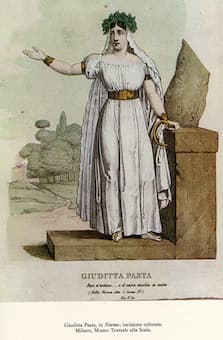
Giuditta Pasta as Norma, 1831
Vincenzo Bellini (1801-1835) was the undisputed master of writing gorgeous melodies. Sensuous in expression and pure in style, Bellini was closely connected with the “bel canto” style of the great singers of his day. In his music, he always looked for clarity, elegance of form and melody, and a close union of words and music. And in his opera Norma he created an extraordinary fusion of sublime melody, vocal challenge, and dramatic power.
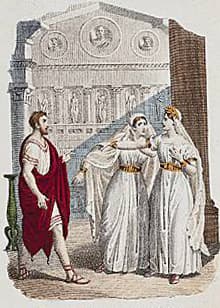
Original cast of Norma – Giuditta Pasta, Giulia Grisi
and Domenico Donzelli
Despite an initial failure, the opera did achieve lasting success. The opera centers on the title role of Norma, a powerful woman who compromised her ideals for love, only to find herself betrayed by her lover. Gustav Mahler confessed that he was unable to listen to Norma without tears, and Richard Wagner was so carried away during the final scene that he was sure the opera had been written by god! Without the shadow of a doubt, the soprano prayer “Casta diva” from Act 1 has become one of the most beloved arias in all of opera. All the operatic greats have taken up this aria, so we decided to showcase some of the best performances, starting with the incredible Joan Sutherland.
“Casta Diva” (Joan Sutherland)
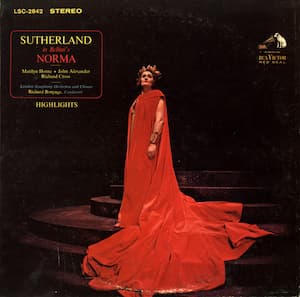
Joan Sutherland
Dame Joan Sutherland (1926-2010) was an exceptional Australian dramatic coloratura soprano who specialized in the bel canto repertoire. At the beginning of her career Sutherland had a “big and wild” voice of truly heroic dimensions, and when her voice darkened it was described as “molten honey,” with a lower register sounding like “a Stradivarius-hued cello.” French soprano Natalie Dessay writes “Sutherland had a huge, huge voice and she was able to lighten suddenly and to take this quick coloratura and she had also the top high notes like a coloratura soprano but with a big, huge voice, which is very rare.” Music critic often complained about her diction, but her performance of “Casts Diva” is in my personal top 3 of all times.
“Casta Diva” (Cecilia Bartoli)
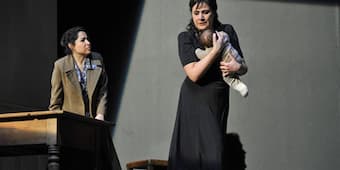
Cecilia Bartoli © Hans Jörg Michel
The Italian coloratura mezzo-soprano Cecilia Bartoli (b.1966) is particularly known for her interpretations of Bellini’s music. In terms of power, Bartoli can’t compete with Sutherland—very few actually can—but she beautifully uses her distinctive and unusual timbre. Her distinctive voice is known for its “fully developed sumptuousness of the lower register, the vibrancy of the middle range…the top was limpid and powerful.” In her performance of “Casta Diva” Bartoli focuses on the dramatic aspect of the role and portrays a soothing Norma. Instead of unleashing great power to convey Norma’s torment and contradictions, Bartoli brings warmth, intimacy, and a bit of cunning to the role.
“Casta Diva” (Sumi Jo)

Sumi Jo
Norma is a role for singers with superb technical agility. It demands full vocal control over long-spun melodies, ferocious leaps and an intricate agility when dealing with coloratura passages. Technical difficulties are no match for the South Korean lyric coloratura soprano Sumi Jo (b.1962). Herbert von Karajan described her voice “as the best gift God has given,” and Le Monde suggested, “even fairies listen to her songs.” Fact is, Sumi Jo stormed the world’s operatic stages by focusing on interpretation of the bel canto repertoire. If you are looking for vocal fireworks in a performance of “Casta Diva,” Sumi Jo is the voice to hear.
“Casta Diva” (Renée Fleming)
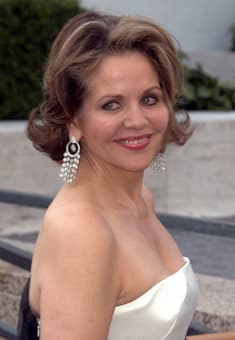
Renée Fleming
Technical demands, none withstanding, Norma is one of the most dramatic roles in all of opera. A high priestess of the Druids, Norma is a leader of her people during a period of brutal suppression by the Romans. She is woman dedicated to religion who has broken her vows of chastity. Norma has fallen in love with a Roman oppressor and borne him two children, something she hides from her community. Renée Fleming has phenomenal technique and voice control, and her dynamic nuances are stunning. Fleming undoubtedly carries sublime emotion and a healthy appreciation of the drama.
“Casta Diva” (Angela Gheorghiu)
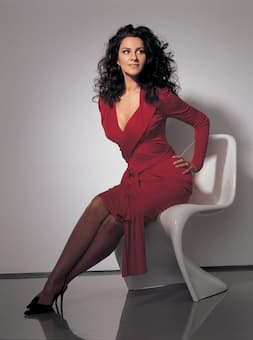
Angela Gheorghiu
The Romanian soprano Angela Gheorghiu (b.1965) made her mark in performances of Puccini operas. What she brings to opera and Bellini is attitude, and lots of it. She absolutely hates directors who “want to express their own fantasies, forgetting about the characters. What they put on stage goes against both the story and the music.” She is certainly not afraid to speak out. “I have the courage,” she said “to be revolutionary in a way. I want to fight for opera, for it to be taken seriously. Pop music is for the body, but opera is for the soul.” If you want a feisty Norma, then Gheorghiu might just be your cup of tea.
“Casta Diva” (Montserrat Caballé)

Montserrat Caballé
Montserrat Caballé’s performance clearly ranks among my top 3 renditions of “Casta Diva.” Caballé appeared in a wide variety of roles, but she really shines in the works of Verdi and the bel canto repertoire, especially Rossini, Bellini, and Donizetti. Her voice is just as powerful as Sutherland but she adds a certain vocal purity. Of course, Caballé always had superb control of vocal shadings, and a most exquisite pianissimo. This allows her to tinge important words with sensuality and with sadness, paying special attention to the drama. For me personally, this is undoubtedly one of the best performances of this operatic role.
“Casta Diva” (Maria Callas)

Maria Callas © Time Inc
Critics have suggested that the “Callas-Norma has not only remained unmatched to this day, but it is also without a convincing alternative.” I suppose, Callas is Norma in that she expresses the totality of the character. There is tragedy, melancholy, pain, love, suffering, and vengeance in every phrase and in every dramatic or lyrical passage. Intuitively we understand that she is the lover, the leader, the goddess and the woman suffering. There is nothing one-dimensional about the Norma character, and Callas is uniquely capable of revealing this totality in her performance. Now you know my favourite performances of “Casta Diva,” what is yours?
For more of the best in classical music, sign up to our E-Newsletter




Nobody has sung Casta Diva like the only and trully diva: Montserrat Caballé. She’s just superb.
I agree personnally with Jenny B, am very surprised by the enthusiasm about Caballe and Sutherland, love Flemming, and am surprised by the lack of praise for Gheorghiu (homogeneity, technique, beauty).
Rosa Ponselle was unmatched in purity of tone and phrasing Early recording of course but classic bel canto.
I agree with Robert Cookson. Rosa Ponselle, certainly for me has to be the definitive Casta Diva. That aside it has to be Callas.
The late, 1992, recording of Caballé does not do her justice. Her 1972 debut in the role at the MET was nothing short of superb. By 1992 she was at the end of her career and no longer had the breath capacity and the delicacy that she had had twenty years before.